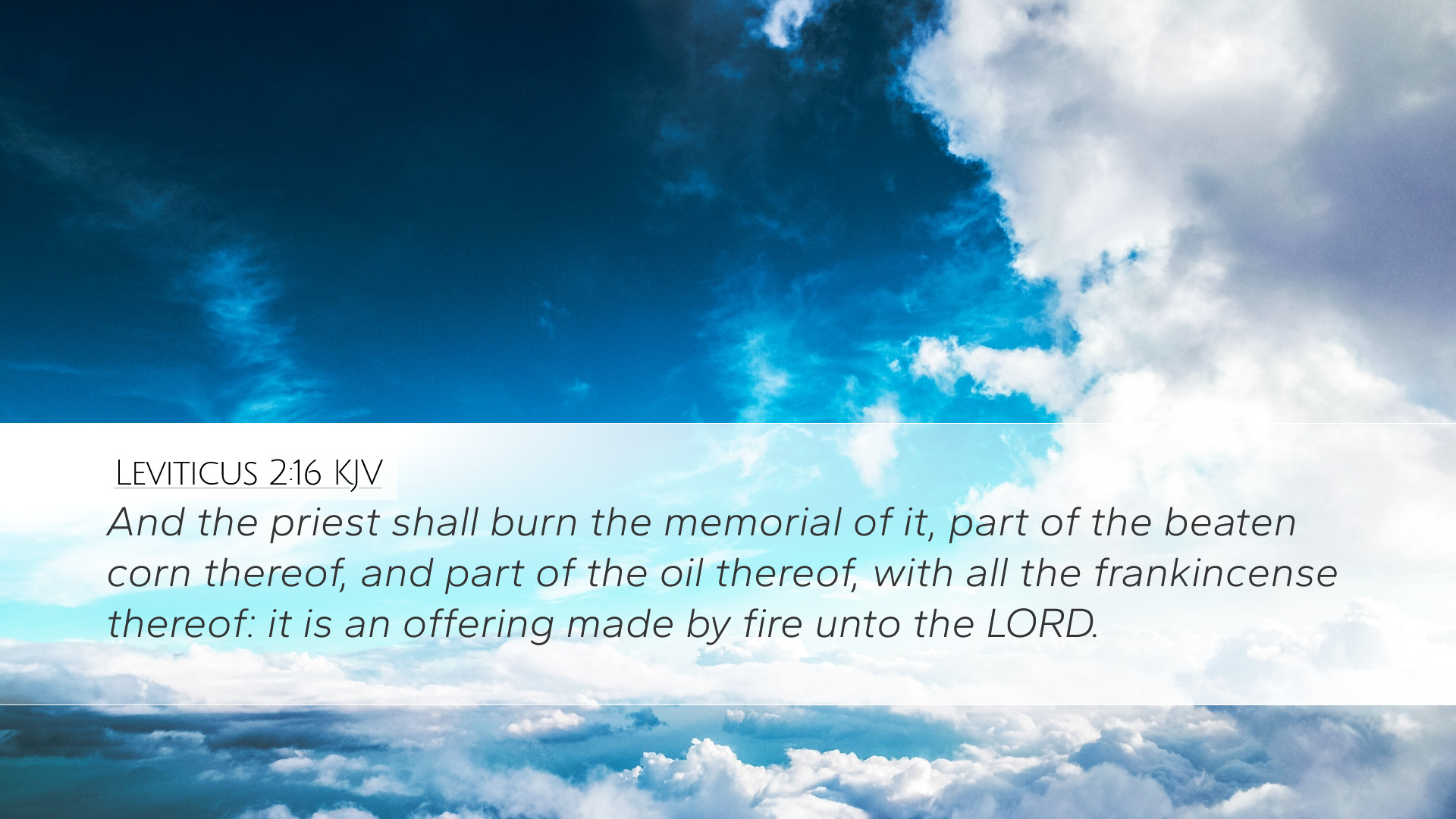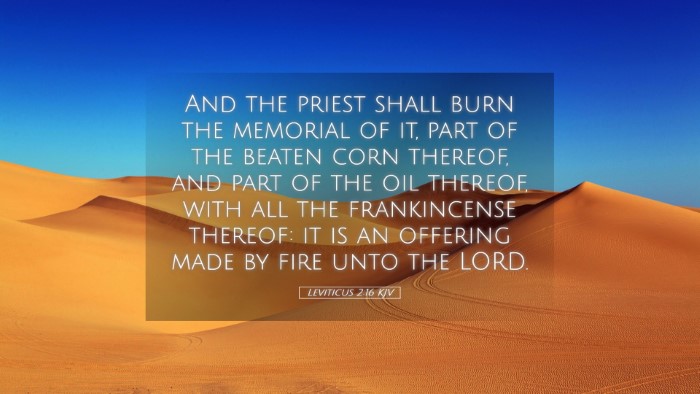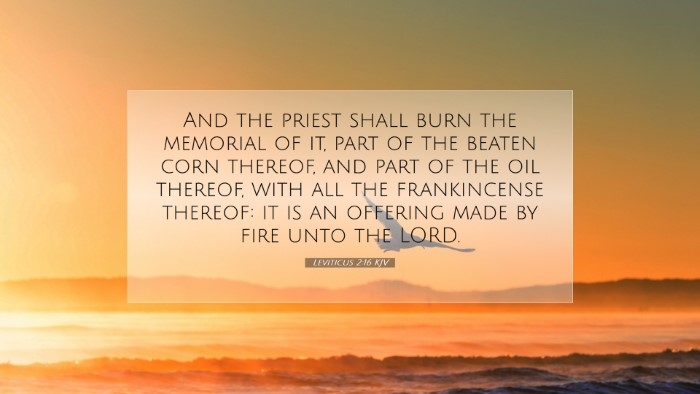Commentary on Leviticus 2:16
Verse Reference: Leviticus 2:16 - "And the priest shall burn the memorial of it, part of the oven-baked bread and part of the unleavened cakes; it is an offering made by fire to the Lord." (NKJV)
Introduction
Leviticus 2:16 serves as a critical verse in understanding the grain offerings prescribed in the Mosaic Law. The grain offering, or "minchah," is significant as it represents an expression of gratitude to God for His provision. This commentary synthesizes insights from notable public domain commentators, including Matthew Henry, Albert Barnes, and Adam Clarke, to explore the depth of this text.
The Nature of the Grain Offering
Grain Offering Definition: The grain offering is primarily a gift of food meant for God. It signifies the worshiper's acknowledgment of God's bounty.
- Matthew Henry emphasizes that the grain offering is a representation of gratitude and thanksgiving, symbolizing the dedication of the fruits of one’s labor back to God.
- Albert Barnes points out that these offerings served a dual purpose: as a means of personal devotion and as a communal acknowledgment of God’s providence.
- Adam Clarke adds that the grain offerings were made with fine flour, symbolizing purity and quality, reflecting the worshiper's intention to honor God with the best of their harvest.
The Role of the Priest
The role of the priest in the grain offering is pivotal. The phrase "the priest shall burn the memorial of it" indicates the priest's intermediary function between God and the worshiper.
- Matthew Henry states that the priest's actions highlight the sanctity of the offering, as it is made suitable for divine acceptance through his ministry.
- Albert Barnes notes that this act of burning certain parts signifies the elevation of the offering to God, symbolizing the relinquishment of sustenance and livelihood to the divine.
- Adam Clarke explains that the memorial portion, which is burnt, serves not only as an offering but also as a symbolic remembrance before God, an assurance that the worshiper's intentions are honored.
Symbolism of the Offering
The functions of the offerings and their elements are rich in theological significance. The specifics of the grain types and the method of presentation highlight various themes in Scripture.
- Matthew Henry reflects on the unleavened nature of the cakes, symbolizing purity and the absence of sin, making it a fitting offering for a Holy God.
- Albert Barnes elaborates that the act of offering bread indicates communion with God, as bread represents life, sustenance, and spiritual fulfillment.
- Adam Clarke expounds on the notion of "burning" as a method of consecration, suggesting that through fire, the offering undergoes transformation into a state acceptable to God.
Application for Today
For modern believers, Leviticus 2:16 invites reflection on the nature of offerings and worship. The themes of gratitude, purity, and dedication remain relevant as individuals seek to respond to God’s grace in tangible ways.
- Pastoral Insight: Pastors can encourage their congregations to offer not just material possessions but also their time and talents as acceptable offerings to God.
- Theological Reflection: Theologies surrounding sacrifice, offering, and atonement can be explored through the lens of this verse, connecting it to the ultimate sacrifice of Christ.
- Practical Application: Believers are called to consider how their work and livelihood can be transformed into offerings of praise, maintaining a posture of continual thanksgiving.
Conclusion
Leviticus 2:16 captures a rich tapestry of meaning surrounding offerings in the ancient covenant community. By tapping into the insights of Henry, Barnes, and Clarke, we glean not only an understanding of the past practices but also valuable lessons that inform our present worship. It is a reminder that every act of giving can be a profound engagement with God, where gratitude, purity, and heartfelt devotion intersect.


